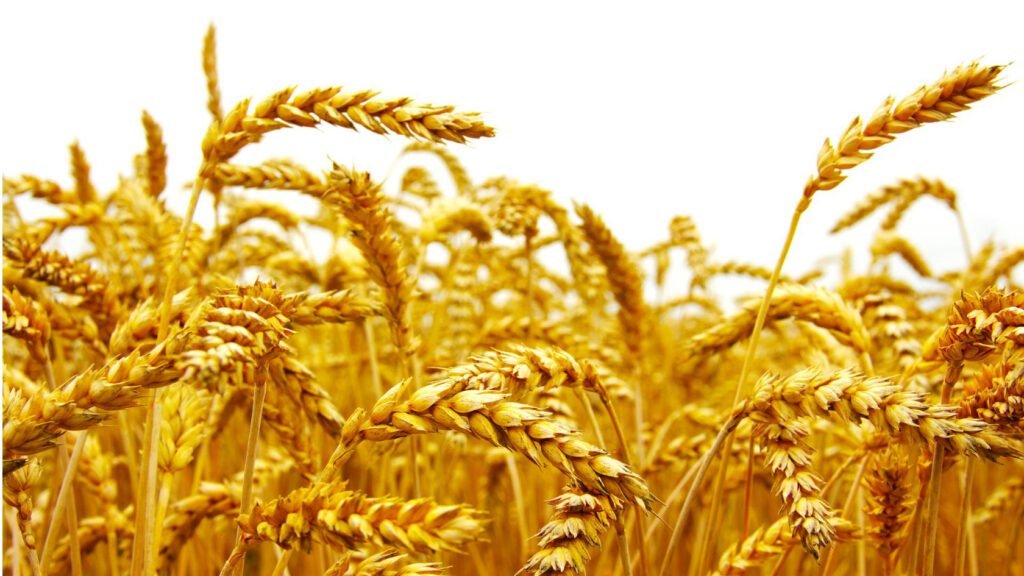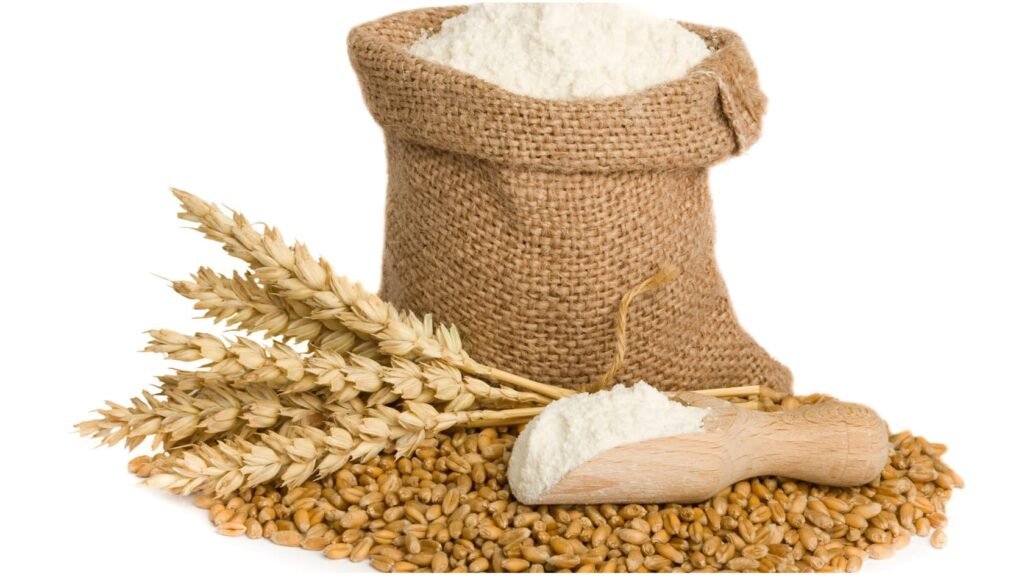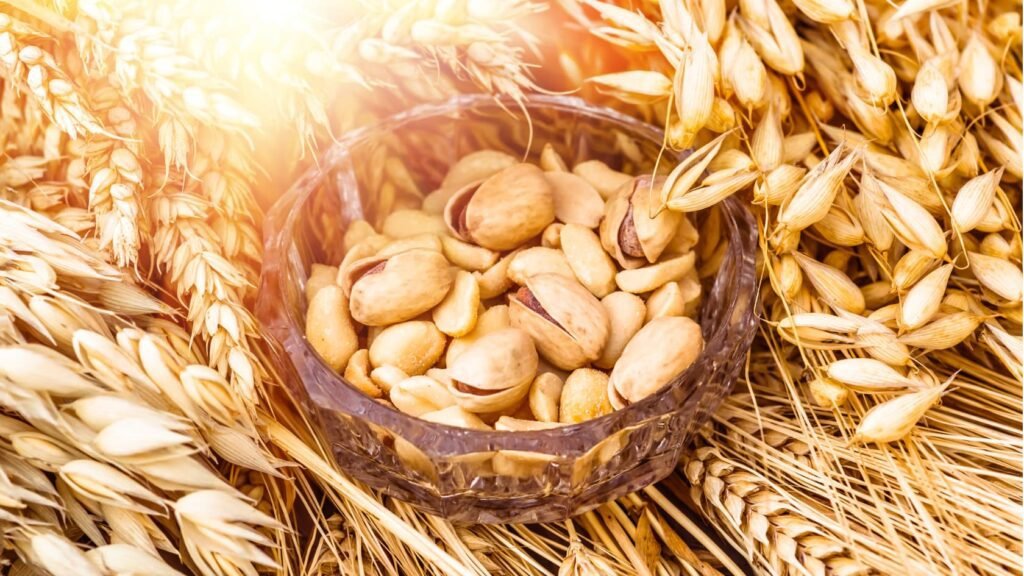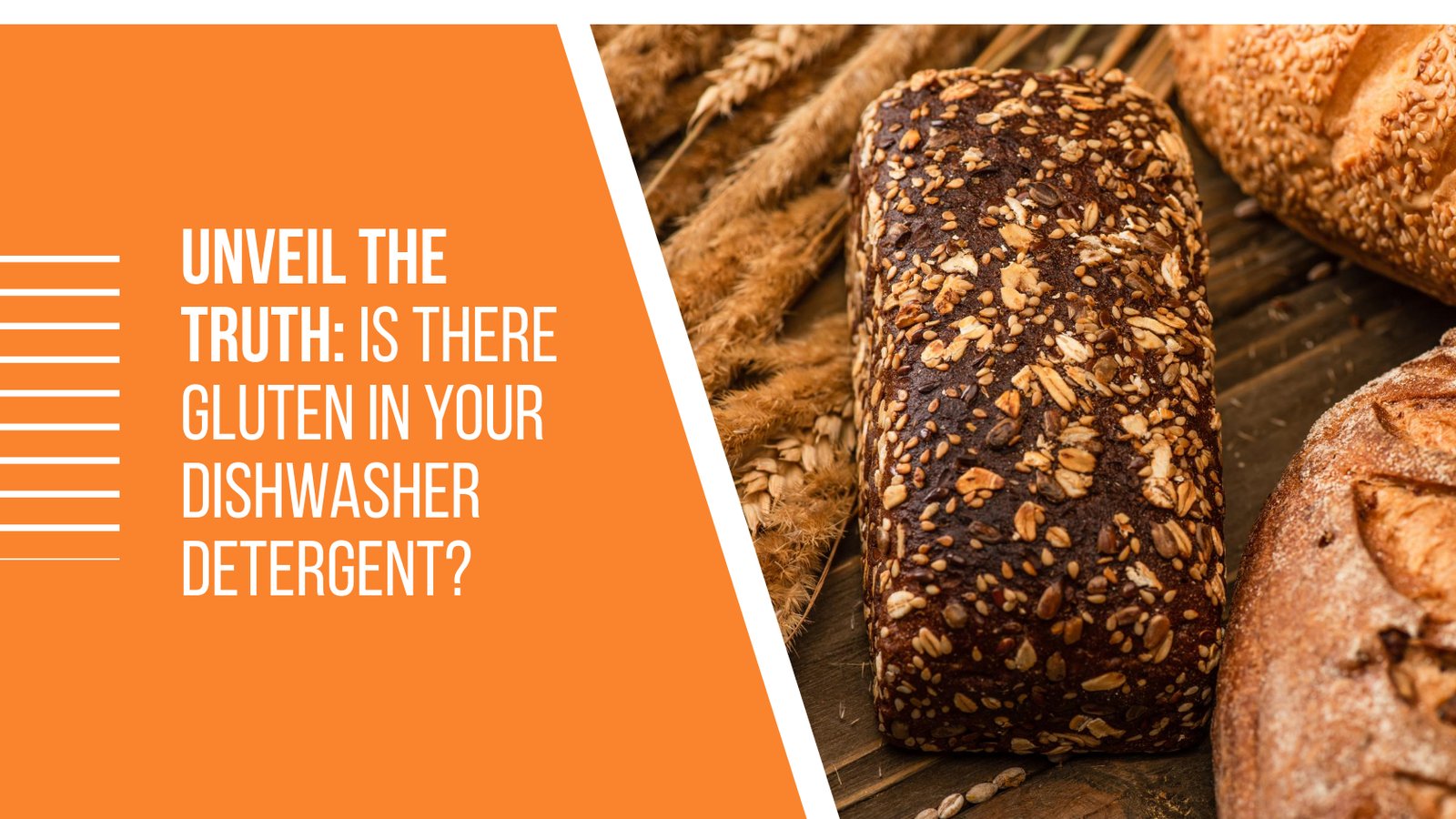Are you a health-conscious individual wondering if gluten is lurking in unexpected places? Is there gluten in dishwasher detergent?
In the quest for a gluten-free lifestyle, it’s crucial to consider not just what you eat, but also what you use to clean your dishes.
Gluten sensitivity and celiac disease have raised concerns about the presence of gluten in cleaning products, including dishwasher detergents.
Gluten, a protein found in wheat, barley, and rye, can trigger adverse reactions in individuals with gluten sensitivities or celiac disease.
While the focus has primarily been on food products, the potential presence of gluten in non-food items, such as dishwasher detergents, has gained attention in recent times.
This has led to inquiries and discussions about the safety of using dishwasher detergents for those who need to adhere to a gluten-free lifestyle.
In this article, we discuss gluten in dishwasher detergents, how to identify it, and how to maintain a gluten-free kitchen.
Some links in this post are affiliate links, meaning, at no additional cost to you, we may earn a commission if you click through and make a purchase. As an Amazon Associate, I earn from qualifying purchases.
What is Gluten and Why is it a Concern in Cleaning Products?

Gluten: It’s that stretchy protein in wheat, barley, and rye that makes bread dough so wonderfully elastic.
It’s not a bad guy for most of us. Unless you have celiac disease or gluten sensitivity, this protein is just another ingredient in your sandwich, particularly since gluten-containing diets often contain lots of vitamins and minerals.
But when we start talking cleaning products, suddenly gluten’s on the watch list for some.
Why the worry? Those with celiac disease must constantly fight to keep this sneaky protein from sneaking into their system, causing stomach troubles and other health issues.
Ingesting gluten is the main issue, but what about the minuscule chance of it hanging around on your freshly-washed dishes?
Can Gluten Be Present in Dishwasher Detergent?

When it comes to dishwasher detergent, the presence of gluten is highly unlikely.
Most of these cleaning products contain specific ingredients designed to remove grease and food stains. They usually include the following ingredients
Surfactants
Enzymes
Cleaning agents
None of these components are derived from gluten-containing grains such as wheat, barley, or rye.
This is good news for individuals with celiac disease, as the risk of gluten contamination from dishwasher detergents is minimal.
However, it’s imperative for people with celiac disease or severe gluten sensitivities to stay vigilant.
Formulations can sometimes change, and the introduction of new ingredients can alter the gluten status of a product.
Checking the ingredient list or reaching out directly to manufacturers can provide the necessary reassurance that a detergent is safe to use.
By verifying that your dishwasher soap is gluten-free, you can maintain a gluten-free kitchen and avoid any potential health complications associated with gluten exposure.
| Dishwasher Detergent Component | Typical Source | Gluten Status |
|---|---|---|
| Surfactants | Synthetic or plant-based | Gluten-Free |
| Enzymes | Microbial or animal sources | Gluten-Free |
| Cleaning Agents | Various chemical compounds | Gluten-Free |
Remember, the key to a gluten-free clean is attention to detail and a little extra due diligence.
How to Identify Gluten in Dishwasher Detergents
You should carefully read labels when looking for gluten-free dishwasher detergent
Inspect the Ingredient List: Look for any mention of wheat, barley, rye, or oats. These often indicate the presence of gluten.
Understand Labeling Terms: Ingredients may be listed under unfamiliar names; research any unknown terms to ensure they’re gluten-free.
Check for Allergen Statements: Some products have allergen labeling; look for statements like “may contain” or “manufactured in a facility that also processes.”
Look for Certifications: Certifications like “Certified Gluten-Free” offer assurance the product meets strict gluten-free standards.
If uncertainties about the gluten status of a detergent persist
Contact the Manufacturer: Reach out directly to inquire about gluten in their products.
Contacting Manufacturers for Safety
A practical step towards safety is contacting the manufacturer when gluten content in dishwasher detergent is unclear.
Directly Ask the Company: Use their contact information, often found on the packaging or their official website, to get in touch.
A phone call or email can offer immediate clarification.
Prepare Key Questions: Have a list of questions ready, such as
Is the dishwasher detergent free from ingredients like wheat, barley, rye, or oats?
Are there potential cross-contamination risks during production?
Is there a dedicated gluten-free production line for this product?
Safe Dishwasher Detergent Options for Gluten-Sensitive Individuals

Individuals with celiac disease or gluten sensitivity need to be vigilant about the products they use, including dishwasher detergent.
Fortunately, there are several safe, gluten-free options on the market.
Highly Rated Gluten-Free Dishwasher Detergents
Each of these brands has made a commitment to producing gluten-free products, catering to the needs of those with sensitivities.
The detergents don’t contain ingredients derived from wheat, barley, rye, or oats, and they are manufactured in environments that prevent cross-contamination.
Cross-Contamination Concerns and How to Mitigate Them
Cross-contamination is a serious concern for individuals with celiac disease, as even the smallest traces of gluten can trigger health issues.
This occurs when gluten particles contaminate gluten-free items, typically through shared cooking spaces or utensils.
To ensure a gluten-free environment, especially in dish washing, consider these mitigation strategies
Remove Food Particles: Keep the dishwasher’s filter and spray arm clear of food debris to prevent gluten residues.
Clean Removable Parts: Wash racks and utensil holders with hot, soapy water, then rinse them thoroughly.
Sanitize the Interior: Run a sanitizing cycle with baking soda and vinegar, natural agents that help remove gluten traces.
Wipe Down Surfaces: Clean the dishwasher’s interior, door seals, and control panel with warm vinegar water, focusing on crevices.
Rinse: Perform an additional rinse cycle to eliminate any lingering gluten particles.
These steps greatly reduce the risk of cross-contamination throughout the dishwasher, ensuring that it remains a safe appliance.
Conclusion
While dishwasher detergent itself typically does not contain gluten, those with celiac disease should still approach the dishwashing process with caution.
By adhering to steps that ensure a thorough cleaning and sanitization of the dishwasher, the risk of inadvertently ingesting gluten can be minimized.
To safeguard against gluten exposure, here is a summary of mitigating strategies
Regular Maintenance: Keep the dishwasher’s filter and spray arms clear of gluten-containing food particles.
Thorough Cleaning: Scrub all removable parts manually with a gluten-free soap solution.
Deep Sanitization: Use baking soda and vinegar cycles to decontaminate the interior spaces.
Detail Attention: Wipe down all nooks and crannies, including door seals and control panels, with a vinegar solution.
Extra Precautions: Add a final rinse cycle to flush away any residual gluten particles.
These simple but effective cleaning practices will ensure your dishwasher is not only clean, but also safe for those with celiac disease.
Keeping these guidelines in mind will help maintain a gluten-free kitchen environment and provide peace of mind for individuals with celiac disease.

Pazi Mboh, our Home Efficiency Advocate, is dedicated to promoting sustainable dishwasher use. His tips on energy and water efficiency not only help the environment but also save on your bills, making his guidance invaluable for eco-conscious households.





